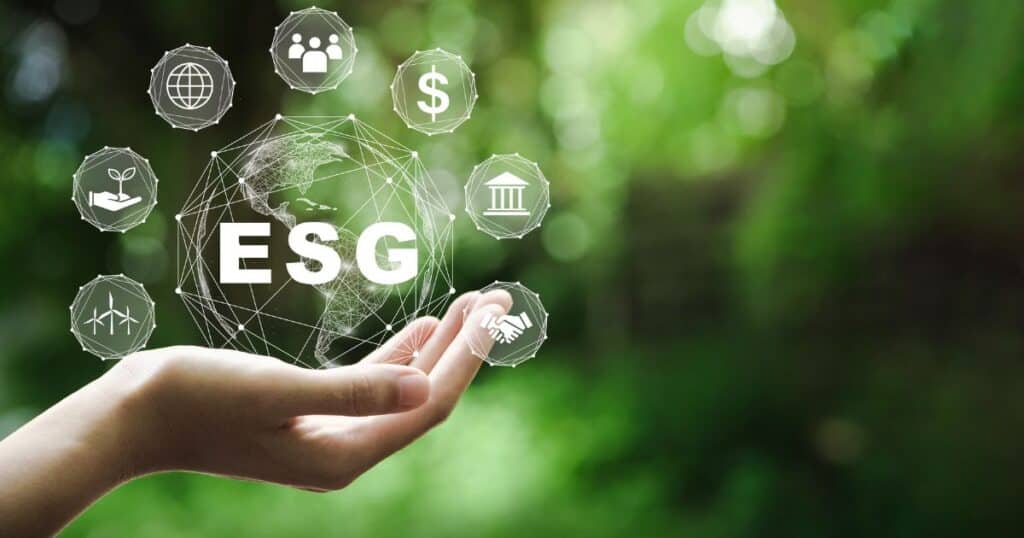In today’s climate of rapidly evolving consumer expectations and increasingly stringent regulations, embracing sustainability is no longer just a noble ambition—it’s a strategic imperative for long-term business success. A sustainable business strategy is one that creates value by thoughtfully incorporating environmental, social, and economic considerations into the core of its operations. By doing so, companies can future-proof themselves against numerous risks while unlocking new opportunities for innovation, growth, and cultivating stakeholder trust.
Why is Sustainability Vital for Businesses Today?
There are several compelling reasons why sustainability should be a top priority for businesses across industries:
- Changing Consumer Preferences: Consumers, especially younger demographics, are increasingly favoring brands that align with their values of ethical and eco-friendly practices. A 2021 survey found that nearly 60% of consumers are willing to change their shopping habits to reduce environmental impact.
- Regulatory Environment: Governments worldwide are implementing policies and regulations that incentivize or mandate sustainable business practices. For instance, the European Union’s Sustainable Finance Disclosure Regulation (SFDR) requires financial institutions to disclose their environmental, social, and governance (ESG) practices.
- Cost Savings: Adopting resource and energy-efficient practices can lead to significant cost savings for businesses in the long run. For example, Walmart’s sustainability initiatives have resulted in over $1 billion in cost savings from waste reduction, energy efficiency, and other measures.
- Talent Attraction and Retention: Top talent, especially millennials and Gen Z, increasingly seek meaningful work that aligns with their values. Companies with robust sustainability programs are better positioned to attract and retain these highly skilled individuals.
- Risk Mitigation: Unsustainable practices can expose businesses to regulatory penalties, reputational damage, and operational disruptions. For instance, Volkswagen’s emissions scandal resulted in over $30 billion in fines and settlements, as well as irreparable brand damage.
Core Elements of a Robust Sustainable Business Strategy

A comprehensive sustainable business strategy should address three key pillars: environmental, social, and economic sustainability. Here’s a closer look at each:
Environmental Sustainability
Environmental sustainability focuses on minimizing a company’s ecological footprint and promoting responsible stewardship of natural resources. Key areas of focus include:
- Reducing Carbon Footprint: Setting science-based targets to reduce greenhouse gas emissions through energy efficiency measures, transitioning to renewable energy sources, and optimizing supply chains.
- Sustainable Supply Chains: Evaluating and collaborating with suppliers to ensure responsible sourcing of raw materials, fair labor practices, and minimizing environmental impact.
- Circular Economy Approach: Designing products and processes with a cradle-to-cradle mindset, emphasizing reuse, recycling, and minimizing waste.
- Water and Waste Management: Implementing water conservation and treatment initiatives, as well as waste reduction and proper disposal strategies.
Social Sustainability
Social sustainability encompasses a company’s impact on its employees, communities, and society at large. Key areas of focus include:
- Fair Labor Practices: Ensuring safe working conditions, fair wages, and opportunities for professional development for all employees.
- Diversity, Equity, and Inclusion: Fostering a diverse and inclusive workplace that embraces different perspectives, backgrounds, and abilities.
- Community Engagement: Investing in and collaborating with local communities through philanthropic initiatives, volunteer programs, and addressing local needs.
- Human Rights: Respecting and upholding fundamental human rights throughout the company’s operations and supply chain.
Economic Sustainability
Economic sustainability ensures a company’s long-term financial viability while creating shared value for its stakeholders. Key areas of focus include:
- Financial Resilience: Maintaining a healthy financial position through responsible fiscal management, risk mitigation, and strategic investments.
- Sustainable Product Innovation: Developing innovative products and services that address sustainability challenges and create new revenue streams.
- Stakeholder Value Creation: Delivering value to shareholders, employees, customers, and communities through ethical and responsible business practices.
- Governance and Transparency: Implementing robust corporate governance structures, transparent reporting, and accountability measures to uphold integrity and trust.
How to Develop an Integrated Sustainability Approach

Developing a truly sustainable business strategy requires an integrated approach that embeds sustainability principles into every aspect of a company’s operations, rather than treating it as a separate silo. Here are some key steps to follow:
- Conduct a Materiality Assessment: Identify the most significant environmental, social, and economic issues that impact your business and stakeholders. This will help prioritize focus areas and allocate resources effectively.
- Set Measurable, Science-Based Targets: Establish clear, quantifiable targets aligned with scientific consensus and industry best practices. Ensure accountability by tying these targets to executive compensation and performance evaluations.
- Embed Sustainability Across All Operations: Rather than creating a separate sustainability department, integrate sustainability considerations into every business function, from product design and procurement to marketing and human resources.
- Align Incentives and KPIs: Revise performance metrics and incentive structures to align with sustainability goals. This could include incorporating ESG factors into executive compensation and employee performance evaluations.
- Lead by Example: Leadership commitment and active involvement are crucial for driving cultural change and fostering a sustainability mindset throughout the organization.
Case Study: Unilever’s Sustainable Living Plan
Unilever, a global consumer goods company, has been a leader in sustainable business practices through its Sustainable Living Plan. Launched in 2010, the plan aims to decouple the company’s growth from its environmental footprint while increasing its positive social impact. Key initiatives include:
- Sourcing 100% of its agricultural raw materials sustainably by 2030
- Achieving zero emissions from its operations by 2030
- Improving health and wellbeing for 1 billion people by 2020 (a target already surpassed)
- Enhancing livelihoods for millions across its value chain
By integrating sustainability into its business model, Unilever has not only reduced its environmental impact but also unlocked new growth opportunities. The company’s “Sustainable Living Brands” (those meeting specific sustainability criteria) grew 69% faster than its other brands between 2015 and 2019.
Key Benefits of Adopting a Sustainable Business Model

Embracing a sustainable business strategy can yield numerous benefits for companies, positioning them for long-term success in an ever-changing business landscape:
- Risk Mitigation: By proactively addressing environmental, social, and economic risks, companies can reduce their exposure to regulatory penalties, operational disruptions, and reputational damage.
- New Revenue Streams: Developing sustainable products and services can open up new market opportunities and meet the growing demand for eco-friendly and ethical offerings.
- Increased Innovation: Rethinking processes, materials, and business models through a sustainability lens can drive innovation and uncover efficiency improvements.
- Improved Brand Reputation and Customer Loyalty: Consumers, especially younger demographics, are more likely to support and remain loyal to brands that align with their values and demonstrate a genuine commitment to sustainability.
- Competitive Advantage: By future-proofing their operations and embracing sustainable practices, companies can gain a competitive edge over those slow to adapt.
- Talent Attraction and Retention: A strong sustainability ethos can help companies attract and retain top talent who seek meaningful work and alignment with their personal values.
- Cost Savings: Initiatives such as energy efficiency, waste reduction, and sustainable sourcing can lead to significant cost savings over time.
- Access to Capital: Investors and lenders are increasingly factoring in ESG performance when making investment decisions, giving sustainable companies better access to capital.
How to Effectively Communicate Your Sustainability Commitments

Developing a robust sustainable business strategy is only half the battle; effectively communicating these efforts to stakeholders is equally crucial. Here are some best practices:
- Transparency and Accountability: Be transparent about your sustainability journey, including both progress and setbacks. Use credible reporting frameworks such as the Global Reporting Initiative (GRI) or the Sustainability Accounting Standards Board (SASB) to ensure consistency and comparability.
- Storytelling: Craft compelling narratives that connect your sustainability initiatives to your company’s purpose, values, and long-term vision. Use relatable examples and case studies to bring these stories to life.
- Stakeholder Engagement: Engage with all stakeholder groups, including employees, customers, investors, suppliers, and local communities, to understand their concerns and priorities. Leverage various channels, such as sustainability reports, social media, town halls, and stakeholder advisory panels, to foster open dialogue and collaboration.
- Thought Leadership: Position your company as a thought leader in sustainability by participating in industry events, publishing white papers, and collaborating with academic institutions and non-profit organizations.
- Third-Party Validation: Consider seeking external certifications or validations from reputable third-party organizations to lend credibility to your sustainability claims and performance.
Quote: “Sustainability is no longer about doing less harm. It’s about doing more good.” – Jochen Zeitz, former CEO of Harley-Davidson and sustainability advocate.
FAQs
What is a sustainable business strategy?
A sustainable business strategy refers to a long-term plan or approach adopted by a company to integrate economic, environmental, and social considerations into its operations, products, and services. It aims to create value not only for shareholders but also for society and the environment.
Why is a sustainable business strategy important?
A sustainable business strategy is crucial for several reasons. It helps companies minimize their environmental impact, improve their reputation and brand image, reduce costs through efficiency improvements, attract and retain talent, meet regulatory requirements, and respond to evolving consumer preferences for eco-friendly products and services.
What are the key components of a sustainable business strategy?
Key components of a sustainable business strategy typically include environmental sustainability practices (such as reducing greenhouse gas emissions and waste), social responsibility initiatives (like fair labor practices and community engagement), ethical governance standards, stakeholder engagement, and transparent reporting on sustainability metrics.
How can a company develop a sustainable business strategy?
Developing a sustainable business strategy involves conducting a thorough assessment of the company’s current practices, setting specific sustainability goals aligned with its values and industry standards, engaging with stakeholders (including employees, customers, suppliers, and communities), investing in sustainable technologies and processes, monitoring progress, and continuously improving based on feedback and performance metrics.
What are the benefits of implementing a sustainable business strategy?
Implementing a sustainable business strategy can lead to numerous benefits. These include cost savings from resource efficiency, enhanced brand reputation and customer loyalty, reduced risks related to regulatory compliance and supply chain disruptions, improved employee morale and productivity, access to new markets and business opportunities, and overall resilience in the face of environmental and social challenges.
Conclusion
In today’s rapidly evolving business landscape, embracing a sustainable strategy is not just a noble aspiration but a strategic imperative for long-term success. By integrating environmental, social, and economic considerations into the core of their operations, businesses can future-proof themselves against numerous risks while unlocking new opportunities for innovation, growth, and stakeholder trust.
However, true sustainability requires more than surface-level programs or greenwashing; it demands a fundamental transformation of business models and mindsets. Companies must be willing to rethink their processes, products, and value propositions through a sustainability lens, aligning incentives and performance metrics with their sustainability goals.
By doing so, businesses can uphold their integrity, deliver lasting value to their stakeholders, and position themselves as leaders in the transition towards a more sustainable future. The time to act is now, as the companies that embrace sustainability today will be the ones that thrive tomorrow.
Are you ready to embark on your sustainability journey? Start by conducting a materiality assessment, setting measurable targets, and embedding sustainability into every aspect of your operations. Remember, a sustainable business strategy is not just a box to check; it’s a pathway to long-term resilience, innovation, and impact.







